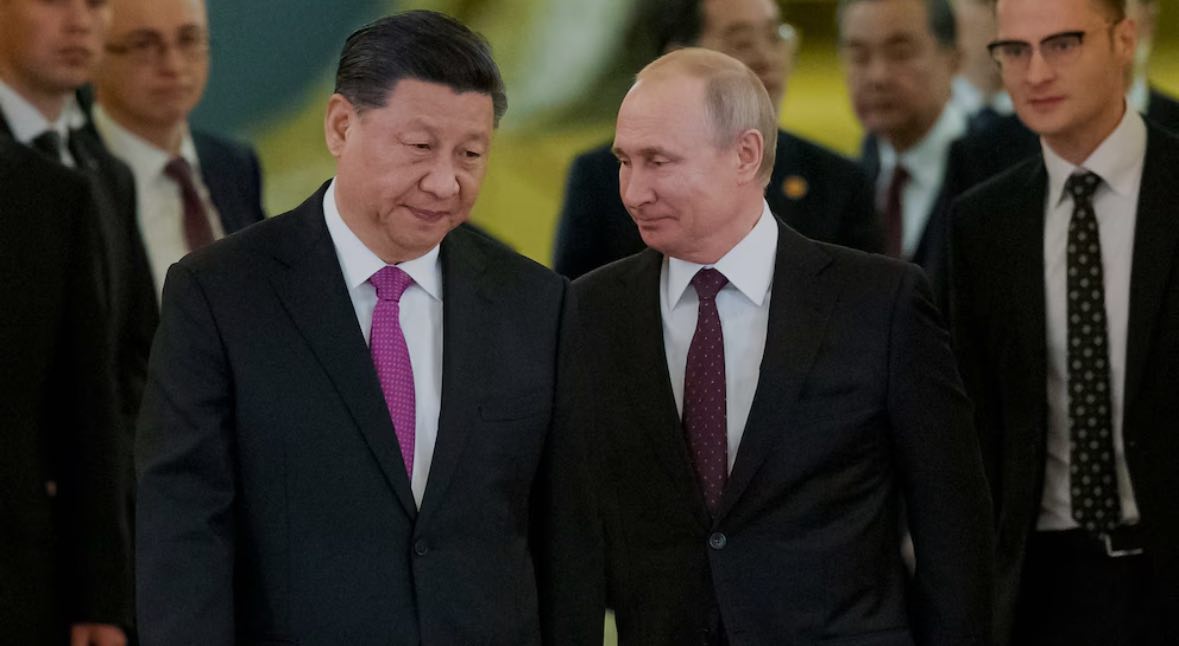What did Putin and Xi Jinping say about longevity at the military parade
What did Putin and Xi Jinping say about longevity at the military parade
According to IranGate News Agency, during an official ceremony in Beijing, an unexpected and private conversation between the leaders of two global powers — Xi Jinping and Vladimir Putin — captured the world’s attention. The conversation, accidentally recorded through an open microphone, was about nothing other than humanity’s age-old desire to conquer aging and achieve long life, perhaps even to the brink of immortality. The introduction of this idea at the highest political levels once again raised the question of whether today’s science can make humanity’s longstanding dream of cheating death a reality.
This report takes a comprehensive look at the scientific and technological realities behind this desire, from advanced organ transplant surgeries to new research in the fields of regenerative medicine and biotechnology.
From Xi and Putin’s accidental revelation to scientific realities: Is organ transplantation the key to immortality?

During the sidelines of an official military parade in Beijing, an unexpected conversation between two powerful world figures made the headlines of many media outlets.
A microphone that was unintentionally left open recorded a private conversation between Xi Jinping, the President of China, and his Russian counterpart, Vladimir Putin. The topic of this conversation was not politics or diplomacy, but the technical and ethical possibility of immortality through human organ transplantation.
In this conversation, part of which was translated into Mandarin, Putin explained that with repeated organ transplants, a process could be achieved where a person’s body continuously becomes younger and younger, to the point where aging might be stopped forever.
He even predicted that in this century, humans might reach the age of 150.
The exchanged smiles between the two leaders indicated that the conversation was somewhat framed in humor, but the fundamental question is whether they inadvertently pointed to a scientific truth.
Saving lives, not eternal ones
In the world of medicine, organ transplantation has been one of the most successful achievements of the past century. According to the UK National Health Service’s Blood and Transplant services, over the past three decades, more than 100,000 people in this country alone have been saved by organ transplants.
Technological advancements have also significantly increased the lifespan of transplanted organs. Some patients have received kidneys that still function well even after 50 years.
However, the lifespan of each transplanted organ depends on multiple factors: the health of the donor and recipient, post-operative care, and of course, the type of organ. Kidneys donated by living individuals usually last 20 to 25 years, while those from deceased donors last between 15 to 20 years.
According to research published in the Journal of Health Economics, the average lifespan of a transplanted liver is about 20 years, a heart 15 years, and lungs only about 10 years.
Can repeated surgeries cheat death?
Xi and Putin were likely discussing the possibility of multiple and repeated transplants, but science has not yet provided a clear answer to this dream.
Each surgery imposes a heavy physical and psychological burden on the body.
Recipients of organs must take immune-suppressing drugs for the rest of their lives, which makes them more vulnerable to infections and diseases.
Even with these drugs, sometimes the body rejects the new organ, treating it as a foreign invader.
From pigs to 3D-printed custom organs are on the way
At the forefront of scientific research, ambitious projects are underway aimed at producing organs with minimal risk of rejection. One of the novel methods involves using genetically modified pigs as donors.
With the help of CRISPR gene-editing technology, genes in pigs are deleted and replaced with human genes to make the organs more suitable for transplantation to humans.
Although this branch of medicine is still in experimental stages, successful transplants of a pig heart and kidney to humans have created hope.
The two volunteers who received these organs later passed away, but they marked significant progress in the field of xenotransplantation.
In another direction, scientists are striving to produce human organs directly in the lab using stem cells, which have the ability to turn into any type of cell or tissue.
So far, the most successful projects include the reconstruction of the thymus, an important gland in the immune system, in mice, and the cultivation of human intestines for transplantation to children with intestinal failure.
Although no fully functional and transplantable human organ has yet been created in the lab, the path is progressing.
Living to 150 years is currently just a wish
Alongside scientific advancements, individuals like Brian Johnson, a technology entrepreneur, have taken personal efforts to rejuvenate their bodies to a new level.
Johnson has spent millions of dollars on complex medical regimens and even injected his 17-year-old son’s blood plasma into himself. However, not only has there been no result, but he has also faced strict scrutiny from bodies like the U.S. Food and Drug Administration.
Doctors say that plasma injections or methods like blood replacement are still in experimental stages, and their effectiveness on extending lifespan has not been proven.
Dr. Julian Mutz from King’s College London says that although this field has attracted a lot of attention, we still do not know whether it can have a meaningful impact on increasing the maximum lifespan of humans.
The invisible walls of the human body
According to Professor Neil Mabbott, an immunology expert from the University of Edinburgh, it seems the ceiling of human lifespan is around 125 years.
The official record holder for longevity was Jeanne Calment from France, who died at the age of 122.
Mabbott explains that even if damaged organs are replaced with transplants, aging leads to decreased physical capacity, weaker immune responses, and difficulty recovering after surgery.
In fact, undergoing multiple surgeries and taking immune-suppressing drugs for very elderly individuals can be more harmful than beneficial.
He says instead of focusing on extending lifespan, we should strive to improve the quality of life years. Spending the final years of life suffering from age-related diseases and constantly shuttling between hospitals and operating rooms is not an attractive prospect for retirement.
While Xi and Putin’s talks about organ transplants may have been more humorous, the question of the technological and biological boundaries of human lifespan remains. Despite significant advances in medicine, science is still far from realizing the dream of immortality.
But perhaps more important than a long life is the quality of living, something that is shaped not in the operating room but in our lifestyle and public health.

